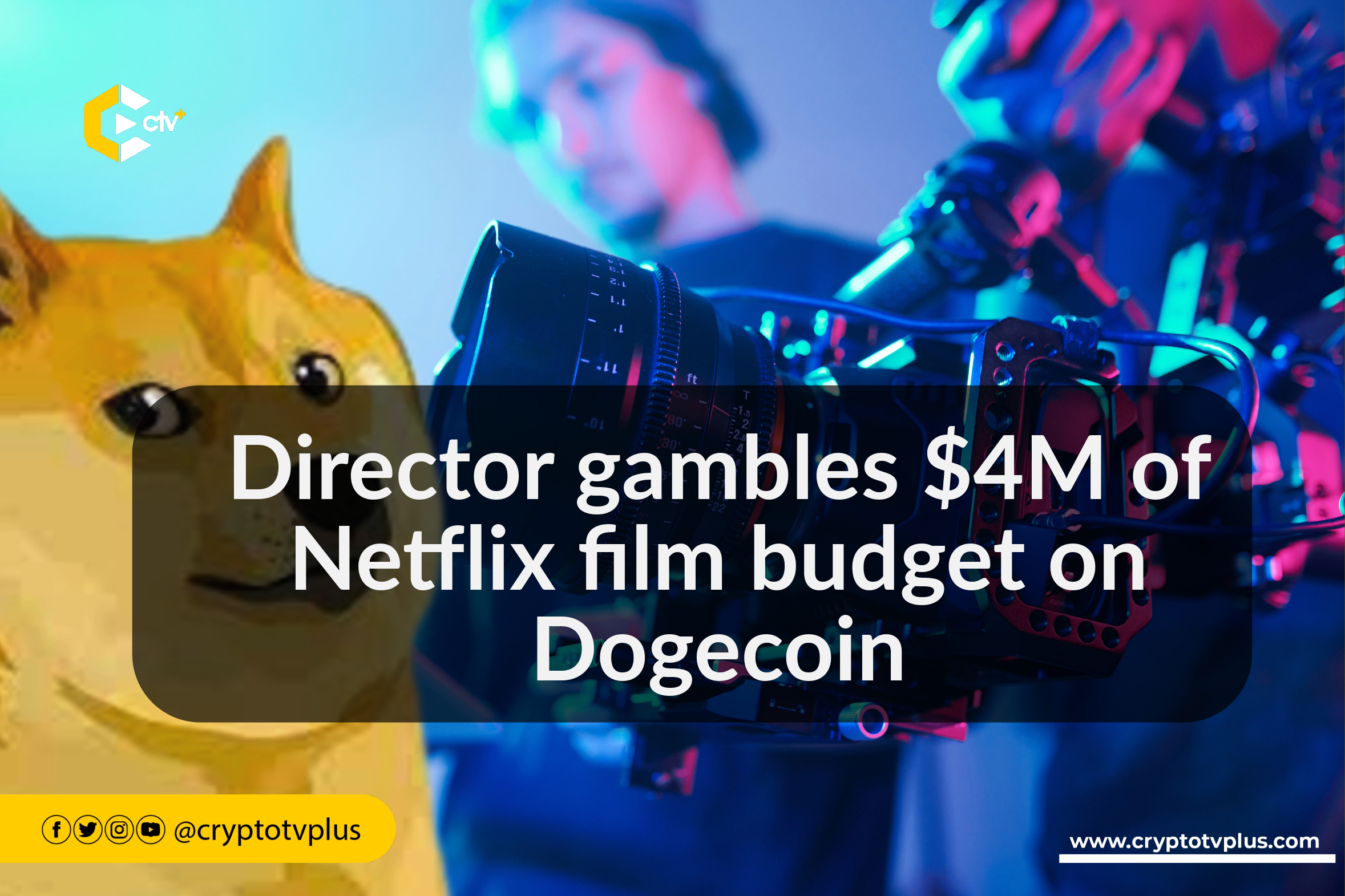News
Director gambles $4M of Netflix film budget on Dogecoin

Director Carl Erik Rinsch allegedly used almost $11M of his Netflix show budget to gamble on stocks and crypto, making millions with a Dogecoin bet. Rinsch allegedly bet $4M of the show budget on Dogecoin, walking away with $27M in profits.
The New York Times reports that Netflix director Carl Erik Rinsch, who allegedly bet millions of the show’s budget on Dogecoin, is now seeking an additional $14M from the company. The report details the drama behind Netflix’s sci-fi series Conquest, which the company spent $55M on, but has yet to receive an episode. Director Rinsch allegedly used $4M of the budget to gamble on Dogecoin.
Netflix initially provided Rinsch with a budget of $44 million in March 2020. However, after 16 months, Rinsch requested additional funds. Netflix granted him $11 million but with the condition that he must complete the show.
According to financial statements obtained by The New York Times, Rinsch used $10.5 million of the $11 million from Netflix to engage in stock market gambling. Allegedly, he lost nearly $6 million within a few weeks by placing options bets on pharmaceutical companies and the S&P 500.
Rinsch then utilized the remaining $4 million to purchase Dogecoin on Kraken. In May 2021, he liquidated his position and withdrew around $27 million, as reported in an account statement seen by The New York Times.
In response to these events, Rinsch tweeted, “Thank you and God bless crypto,” along with a mention of a Kraken representative on X (formerly Twitter).
Wild Netflix story.
In 2018, it bought a sci-fi series from director Carl Rinsch. By 2020, Netflix spent $44m on the show.
Production was floundering and Rinsch demanded $11m more. He took the funds and quickly lost ~$6m in pharma option YOLOs.
A bit later, he took $4m and… pic.twitter.com/JnvY09Op9A
— Trung Phan (@TrungTPhan) November 22, 2023
According to a forensic accountant hired by Rinsch’s ex-wife for divorce proceedings, it is alleged that Rinsch spent nearly $9 million of the $27 million withdrawn from Kraken on high-end furniture, designer clothing, and luxury cars. This includes five Rolls Royces and a Ferrari.
The New York Times reports that Rinsch filed an arbitration proceeding against Netflix, claiming breach of contract. Netflix denies any wrongdoing and has labeled Rinsch’s demands as extortion.
Rinsch argues that the purchased items were props for Conquest and claims he is owed $14 million. The case was heard by an arbitrator in November, and a ruling is expected soon.
Read also: How Stride is transforming liquid staking on Cosmos
























